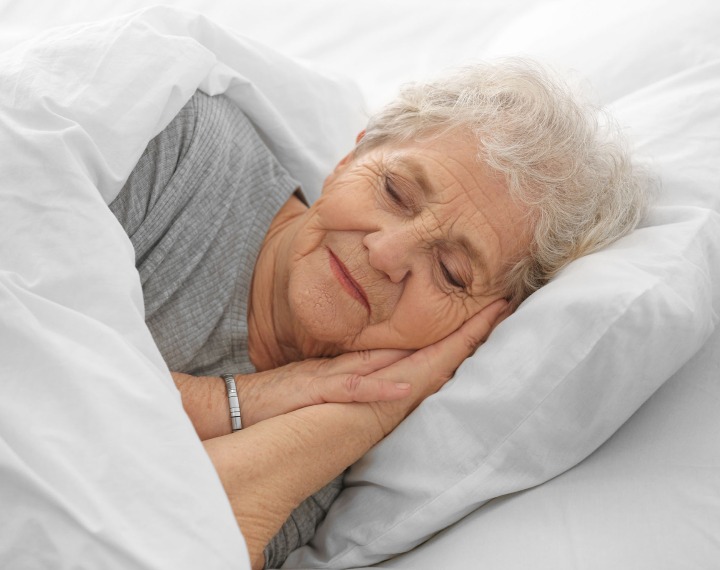Dealing With Insomnia In Seniors
 There’s a common misconception that as we get older we need less sleep. However, that’s not actually true. Children need more sleep than adults but that’s the only difference when it comes to the amount of sleep that we need - adults of all ages need the same amount of sleep. As a rule of thumb, most adults, including seniors, require between seven to nine hours of sleep a night.
There’s a common misconception that as we get older we need less sleep. However, that’s not actually true. Children need more sleep than adults but that’s the only difference when it comes to the amount of sleep that we need - adults of all ages need the same amount of sleep. As a rule of thumb, most adults, including seniors, require between seven to nine hours of sleep a night.
Without the right amount of sleep, our bodies become weaker and less able to fight off infections, so it’s crucial that your residents are getting enough sleep, especially as seniors are more prone to infections due to their age. The problem is that over 50 percent of adults over the age of 60 suffer from insomnia.
When it comes to dealing with insomnia in seniors, identifying the cause is crucial, as is finding ways to alleviate the problem, helping your residents to get a good night’s sleep.
What causes insomnia in older adults?
The causes of insomnia in seniors range from medical conditions like dementia to being unable to sleep due to stress. Studies have shown that pain is one of the most common causes of insomnia in older adults, with joint pain from conditions like arthritis causing chronic pain. Unless chronic pain is properly dealt with, insomnia is hard to beat, because if you are in pain it’s almost impossible to fall asleep. Whereas for residents with medical conditions, such as dementia, insomnia is caused by the condition itself, as dementia can lead to changes in the brain that cause nightmares, leaving dementia sufferers scared to go to sleep.
What can be done to alleviate the problem?
While insomnia is often caused by health conditions, such as dementia, in other cases it’s simply caused by a resident’s lifestyle. In this instance, it’s important to take into account what the resident is doing during the day and leading up to the time when they go to bed, as you may be able to determine what’s causing the problem. The worst culprits for causing insomnia are too much caffeine, exercising too close to bedtime, having too much screen time, and failing to relax before going to bed.
Of course, in instances where changing these things don’t work, it’s important to consider that underlying medical issues could be the cause. These include things like depression, sleep apnoea, and restless leg syndrome. If you are concerned that a resident may be suffering from a health condition causing insomnia, it’s best to consult a doctor. If the health condition diagnosed causes breathing difficulties, changing the position of the resident’s bed can help to make it easier for them to get a better night’s sleep - for this adjustable beds are ideal.
Sometimes the cause of insomnia is down to a lack of comfort. So it’s important to ensure that your care home residents have comfortable mattresses and beds, and have a sleep space that has minimal levels of light and noise and isn’t too hot or cold.
Are sleeping pills the answer?
While some residents take sleeping pills to help them sleep, this isn’t always a good idea as pill taking can then become a habit. It’s much better to find activities to help prevent insomnia rather than to rely on sleeping pills.
Instead of taking sleeping pills, residents should be encouraged to follow a healthy diet, drink plenty of water, and get adequate exercise. They should also be encouraged to get into some kind of bedtime routine, to allow their minds and bodies to wind down for the day and begin to relax. This could consist of things like taking a relaxing bath, practicing meditation-based exercise, reading a book, and having a cup of tea.
Hopefully, the above tips will help to make dealing with insomnia in senior residents a little easier.




